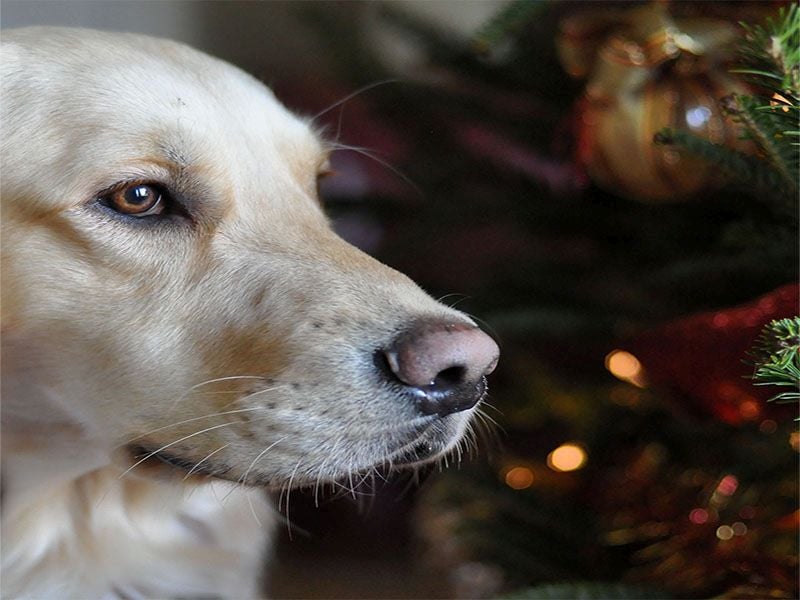
SATURDAY, Nov. 25, 2023 (HealthDay News) — A beloved pet falling ill can wreck a family’s holiday festivities, and this season presents many potential hazards for dogs and cats, the U.S. Food and Drug Administration (FDA) warns.
Some dangers of the season include:
-
Stockings stuffed with pet treats. A dog gobbling too many treats at once can wind up with them lodged in their windpipe or GI tract, causing drooling, choking or vomiting.
-
A new bone or chew toy. A dog who swallows a new toy might not show symptoms for hours or days, then vomit, have diarrhea, lose appetite, become less active or have stomach pain.
-
Tinsel or ribbons. Cats might find these fun to play with, but if ingested, they can cause serious stomach and intestinal damage.
-
Salt-dough ornaments or homemade play-dough. The salt in this dough can be deadly to pets. A 10-pound pet can get sick after eating just a half-teaspoon of table salt, and 1-1/2 teaspoons can be fatal.
-
Holiday plants. Poinsettias, mistletoe and holly are toxic to pets, and can cause drooling, vomiting, diarrhea and more serious symptoms.
-
Table scraps. Scraps high in fat can cause an upset stomach or potentially life-threatening pancreatitis. If a dog gets into the trash, they could ingest a sharp bone from a turkey carcass.
-
Food and snack bags. Plastic bags for potato chips, cereal and other snacks can be dangerous for a dog, who can suffocate if it gets his head stuck in one.
-
Human treats. Chocolate, mints and alcohol can cause illness in both dogs and cats.
Mints can contain xylitol, which is toxic to animals. Symptoms of xylitol ingestion occur quickly, staring with vomiting and leading to decreased activity, weakness, staggering, incoordination, collapse and seizures.
Chocolate also can cause severe symptoms in some pets, including liver failure, bleeding and death. Unsweetened or baking chocolate is especially hazardous to pets, the FDA said.
If a person suspects their pet has ingested something and it is lodged inside them, they should contact their veterinarian immediately, the FDA said.
The vet might need to take X-rays, use an endoscope or even perform abdominal surgery to detect the problem and addresws it.
More information
The ASPCA has more holiday safety tips.
SOURCE: U.S. Food and Drug Administration, news release, Nov. 23, 2023
